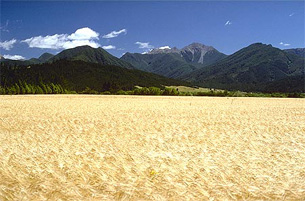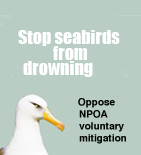 |
 |
 |
 |
 |
 |
 |
 |
 |
 |
 |
| Deep-sea fisheries |
| Genetic modification |
| Global warming |
| Miscellaneous topics |
| Native species control |
| Seabird protection |
 |

|
|
|
The comments presented are from interested people wishing to express their views, pass on information, and participate in discussion on various environmental issues. Their comments are not necessarily the opinion of TerraNature, and may not represent a position TerraNature takes. |
|
 |
Genetic modification Related TerraNature Article: |
|
We have politely messed around long enough, expressing opposition to GM within the constraints of the law. If opposition from 70 percent of the population is not enough, it is time to resort to crop pulling and obstructing research. Sarah Roberts, Wellington 17 January 2004 |
|
|
We have opposed GM with letters to government, peaceful demonstration, and submissions. None of this is has had any effect - nobody is listening. ERMA is going to approve GM projects regardless of how much opposition it gets. The only recourse now is nonviolent direct action. GM crops will be pulled up. Tommy Delgado, Christchurch 18 January 2004 |
|
|
The many New Zealanders who are opposing genetic engineering must be commended on making a stand. I follow the issue in New Zealand because after living down under for a period, I enjoy buying New Zealand food products in California when I can, and would like to see them stay GE free. Mick Taylor, San Francisco 10 December 2003
|
|
 |
 |
  |

 Genetic modification
Genetic modification Return to have your say ... comments directory
Return to have your say ... comments directory
